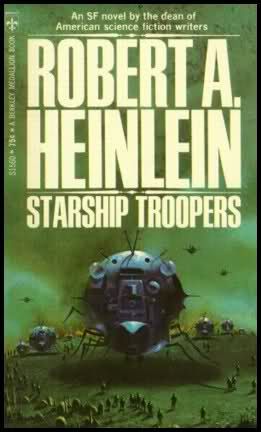One that continues to baffle me is the indefatigable enthusiasm of some fans for explaining to others that Barrayaran neo-feudalism is a terrible system of government, as if their fellow readers couldn’t figure that out for themselves. It seems to rest on an a-historical understanding, or simply a lack of understanding, of feudalism, a system that died out in our world five hundred years ago, to be replaced by geographically based national states. (Well, four hundred years ago, in Japan.) From the passion these readers bring to the table, one would gather they imagine insidious card-carrying Feudalists are dire threat to the lifeblood of our nation. I’m not sure I should tell them about the SCA.
Portrayal is not promulgation, people.
That said, I’ve spent thirty years learning that no writer, be they ever so clear and plain, can control how readers read, or misread, their texts. Reading is a dance, not a march. If some readers step on one’s feet, well, it’s still better than sitting by the wall … Usually.
Lois McMaster Bujold, “Lois McMaster Bujold on Fanzines, Cover Art, and the Best Vorkosigan Planet”, Tor.com, 2017-11-02.
March 23, 2022
QotD: Fansplaining that feudalism is bad
January 1, 2022
QotD: Heinlein’s “Crazy Years”, Alfred Korzybski’s General Semantics, and modern times
While Heinlein (as far as I know) supplied no rationale for the advent and the recession of the craziness in the Crazy Years, A.E. van Vogt was freer with his speculations: insanity, either of individuals or of peoples, in van Vogt’s stories (and perhaps in the theories of Alfred Korzybski, who discovered or invented General Semantics) is caused by a fracture or disjunction between symbol and object. When your thoughts, and the thing about which you think, do not match up on a cognitive level, that is a falsehood, a false belief. When the emotions associated with the thought do not match to the thing about which you think, that is a false-to-facts association, which can range from merely a mistake to neurosis to psychosis, depending on the severity of the disjunction. You are crazy. If you hate your sister because she reminds you of your mother who beat you, that association is false-to-facts, neurotic. If you hate your sister because you have hallucinated that you are Cinderella, that association is falser-to-facts, more removed from reality, possibly psychotic.
The great and dire events of the early Twentieth Century no doubt confirmed Korzybski in the rightness of this theory. Nothing prevents a race of people from contracting and fomenting a false-to-facts belief: the fantasies of the Nazi Germans, pseudo-biology and pseudo-economics combined with the romance of neo-paganism, stirred the psyche of the German people for quite understandable reasons. From the point of view of General Semantics, the Germans had divorced their symbols from reality, they mistook metaphors for truth, and their emotions adapted to and reinforced the prevailing narrative. They told themselves stories about Wotan and the Blood, about being betrayed during the Great War, about needing room to live, about the wickedness of Jewish bankers and shopkeepers, about the origin of the wealth of nations — and they went crazy.
The Russians, earlier, and for equally psychological and psychopathic reasons told themselves a more coherent but more unreal story about history and destiny, taken from a Millenarian cultist named Marx, and they were, on an emotional level even if not on a cognitive level, convinced that shedding the blood of millions would bring about wealth as if from nowhere. And, because they used the word “scientific” to describe their brand of socialism, they actually thought their play-pretend neurotic story was a scientific theory that had been discovered by rigorous ratiocination — and they went crazy.
Berlin was bombed into submission during the Second World War, and the Berlin Wall collapsed along with the Soviet Empire at the end of the Cold War. But the modern methods of erecting false-to-facts dramas appealing to mass psychology, once discovered, did not fall when their practitioners fell: scientific socialism, naziism, fascism, communism, all have in common the subordination of word-association to political will. All these doctrines have a common ancestor, which is the social engineering theory of language: if you change the connotation of word, so the theory runs, you change the connotations of thoughts. General Semantics says that if an individual, or whole people en mass, adopt deliberately false beliefs, supported by deliberately manipulative word-uses, he or they will have increasingly unrealistic and maladaptive behaviors. Introduce Political Correctness, ignore factual correctness, and the people will go crazy.
The main sign of when madness has possessed a crowd, or a civilization, is when the people are fearful of imaginary or trivial dangers but nonchalant about real and deep dangers. When that happens, there is gradual deterioration of mores, orientation, and social institutions — the Crazy Years have arrived.
John C. Wright, “The Crazy Years and their Empty Moral Vocabulary”, John C. Wright, 2019-02-18.
November 30, 2021
QotD: Getting to dystopia
I’d like to pick up on that first thought of mine: When I was a kid and watched sci-fi movies set in a futuristic dystopia where dehumanized individuals are mere chattels of an unseen all-powerful machine policed by commissars in identikit variety-show tinfoil suits in a land where technology has advanced but liberty has retreated, I always found the caper less interesting than the unseen backstory: How did they get there from here? And […] we’re now in the getting-there-from-here phase.
Things are changing very fast. And, if we don’t fully understand why they’re changing and where they’re heading, we’re going to end up in one of those dehumanized dystopias — and very soon.
Mark Steyn, “Live Around the Planet: Tuesday January 22nd”, Steyn Online, 2019-01-22.
November 16, 2021
QotD: Writing SF and fantasy
Science fiction and fantasy are the only genres in which a series can be defined by the universe in which it is set, which, when you think about it, gives a vast lot of creative elbow-room, potentially.
Lois McMaster Bujold, interview at Blogcritics, 2005-05-24.
November 5, 2021
The New York Times identifies the next big threat to humanity – “Muskism”
In Thursday’s NP Platformed newsletter, Colby Cosh outlines the “evidence” amassed in a recent New York Times essay blaming Elon Musk for, well, everything:
Lepore commences by describing Bill Gates’s 66th birthday party, for which a bunch of rich people — including Amazon’s Jeff Bezos — were helicoptered to a private beach from a nearby yacht. Neither Elon Musk, thought to be the world’s richest person, or Mark Zuckerberg, founder of newly rebranded Facebook, were present at the party. Zuckerberg was busy illuminating plans for his “metaverse”, which Lepore describes as “a virtual reality,” wherein you wear “a headset and gear that closes out the actual world.”
Here’s where Lepore goes from this: “The metaverse is at once an illustration of and a distraction from a broader and more troubling turn in the history of capitalism. The world’s techno-billionaires are forging a new kind of capitalism: Muskism.”
In literally the next sentence, Lepore admits that the subject of her essay, Elon Musk, immediately and publicly made fun of the Facebook “metaverse” plans. We are on the third paragraph of the essay, and Lepore has already: a) blamed Elon Musk for an A-hole billionaire party he didn’t attend, because he was busy with his engineering and manufacturing projects; and b) applied the new coinage “Muskism” to a virtual reality project that actual Musk loudly criticized. Somehow this essay has severed its own hydrocephalic head twice over, within 500 words.
It gets worse from there as Lepore attempts to complete her mission of denouncing Muskism, which she describes as an “extreme extraterrestrial capitalism.” She quickly has to admit that Bill Gates, who is mostly spending a computing fortune on global philanthropy these days when he’s not lifting off from yachts in choppers, doesn’t have one single freaking thing to do with absolutely any of this. NP Platformed was an editor back in the day, so we notice that the intro of Lepore’s essay is at this point not only detached from its body, but has been left to rot several miles away. Gates-Musk-Bezos-Zuckerberg: they’re all tentacles of the same menacing Muskist octopus here, as in so much newspaper and magazine commentary, and abuse flung in their general direction will suffice to condemn all.
Lepore’s accusation against Musk turns out to be … that he likes some classic science fiction but doesn’t always concur with the politics of its authors. Musk has called himself a “utopian anarchist of the kind best described by Iain Banks,” but Banks was “an avowed socialist.” Gasp! Banks (1954-2013), the Scottish science fiction author best known for the Culture series, was a particular kind of U.K. “libertarian socialist” who believed strongly in spacefaring as a step toward post-scarcity life for sentient beings. His politics are easily misunderstood by Americans, who don’t have this particular kind of weirdo, and the interstellar “Culture” he envisioned was never intended to be admired unironically. In other words, that part of Lepore’s essay is as mangled and obtuse as the rest.
October 31, 2021
QotD: We’re still trapped in Heinlein’s “Crazy Years”
In Robert Heinlein’s famed “Future History” he constructed an elaborate timeline of thing to come, to provide a structure for his short stories.
Looking forward from the year 1940, when the timeline was first formed, it was reasonable, even conservative, guesswork to predict the moon landing by the 1980’s, forty years later, since the first powered flight by the Wright Brothers had been forty years earlier. Heinlein’s Luna City founded in 1990 a decade or so later, with colonies on Mars and Venus by 2000. Compare: a submersible ironclad was written up as a science romance by Jules Verne in 1869, based on the steam-powered “diving boat” of Robert Fulton, developed in 1801. In 1954 the first atomic-powered submarines — all three boats were named Nautilus — put to sea. The gap between Verne’s dream and Rickover’s reality was eight decades, about the time separating Heinlein’s writing of “Menace from Earth” and its projected date.
Looking back from the year 2010, however the dates seem remarkably optimistic and compressed. We have not even mounted a manned expedition to Mars as yet, and no return manned trips to the Moon are on the drawing boards.
One prediction that was remarkably prescient, however, was the advent of “The Crazy Years” described as “Considerable technical advance during this period, accompanied by a gradual deterioration of mores, orientation, and social institutions, terminating in mass psychoses in the sixth decade, and the interregnum.”
He optimistically predicts a recovery from the Crazy Years, the opening of a new frontier in space, and a return to nineteenth-century economy. Full maturity of the human race is achieved by a science of social relations “based on the negative basic statements of semantics.” Those of you who are A.E. van Vogt fans will recognize our old friends, general semantics and Null-A logic cropping up here. Van Vogt, like Heinlein, told tales of a future time when the Non-Aristotlean logic or “Null-A” training would give rise to a race of supermen, fully integrated and fully mature human beings, free of barbarism and neuroses.
Here is the chart [full size version here]. Note the REMARKS column to the right.
What Heinlein failed to predict was that the Crazy Years would simply continue up through 2010, with no sign of slackening. Ladies and gentlemen, we live in the Crazy Years.
John C. Wright, “The Crazy Years and their Empty Moral Vocabulary”, John C. Wright, 2019-02-18.
September 29, 2021
QotD: Lizard people
Many years ago I read a penetrating analysis of UFOlogy arguing that the reports of people who believed themselves UFO contactees or witnesses were expressing the same sorts of psychological drama that in past centuries would gave been coded as religious experiences – eruptions of nigh-incomprehensible powers into the mundane world.
In this telling, to understand UFO reports and the weird little subculture that has grown up around their believers, you need to understand that for those people the imagery of the cheesiest sort of B-movie science fiction has taken up the same receptors in their minds that religious mythology does for the conventionally devout. What they are really grappling with is mystical experience – altered states of consciousness, mindstorms that are very real phenomena in themselves but one which they lack any context to understand in a rational and generative way.
When I remembered this, I found a fruitful question to ask. That is, what is it about their experience of reality that believers in lizard people are coding in this cheesy SFnal imagery? What are they actually trying to talk about?
The answer came to me almost immediately once I managed to formulate the question. That was the moment at which I realized that, barring one unimportant detail, lizard-people theory is actually true.
The unimportant detail is the part about the lizard people being actual extraterrestrials. But let’s look at the rest of it. The believer says: Our elites behave as though they are heavily infiltrated by beings hostile to the interests of ordinary humans. They hide behind a mask of humanity but they have alien minds. They are predators and exploiters, cunning at hiding their nature – but sometimes the mask slips.
Nothing about this is in any way wrong, once you realize that “lizard” is code for “sociopath”. Sociopaths do, differentially, seek power over others, and are rather good at getting it. The few studies that have dared to look have found they are concentrated in political and business elites where drive and ruthlessness are rewarded.
“Lizard” is actually a rather clever code, if you happen to know your evolutionary neuroanatomy. Oversimplifying a little, humans have an exceptionally elaborate neocortex wrapped around a monkey brain wrapped around a lizard brain. The neocortex does what we are pleased to consider higher cognitive functions, the monkey brain does emotions and social behavior, and the lizard brain does territoriality/aggression/dominance.
What is wrong with sociopaths (and psychopaths – these categories are not clearly distinguished) is not entirely clear, but it is certain that their ability to experience emotions is damaged. The monkey brain is compromised; sociopaths live more in their lizard brain and display a lizard-like ability to go from flat affect to aggressive violence and back again in two blinks of an eye.
So, yeah, aliens. We have a live conspiracy theory because a lot of people can sense the alienness in their sociopathic/psychopathic bosses and politicians – and sometimes the mask slips. Not having any grasp of the language of abnormal psychology, they reach for the nearest metaphor handy. There’s a close relative of lizard-people theory in which which many of our elites are held to be members of an ancient Satanic conspiracy and have become demon-ridden; this is different language carrying the same freight.
Eric S. Raymond, “The reality of the lizard people”, Armed and Dangerous, 2020-02-15.
September 12, 2021
Terry Pratchett: Discworld And Beyond
September 7, 2021
L. Neil Smith, 12 May 1946 – 27 August 2021
From what might be the penultimate issue of the Libertarian Enterprise, Neil’s daughter Rylla Smith says farewell to her father:
Lester Neil Smith III, novelist and political commentator, gunsmith and musician, visionary and futurist, passed away on Friday, August 27th at Poudre Valley Hospital after a lengthy battle with heart and kidney disease. He was 75 years old.
A long-time resident of Fort Collins, Colorado, Neil was born on May 12th, 1946 at Mercy Hospital in Denver, Colorado to Maj. Lester N. Smith II and Marie L. Coveleskie Smith.
Neil, known in the world of science fiction as L. Neil Smith or, affectionately, “El Neil”, is survived by his beloved wife, Cathy L.Z. Smith, his daughter, Rylla C. Smith, his brother Roger L. Smith, his nephews Nolan and Travis, and his aunt, Barbara Ohlwiler, as well as countless friends and brothers-in-arms. He was preceded in death by his mother and father.
Neil’s life was one spent perpetually looking forward — toward the future of freedom, of technology, of the continuation of the evolution of the human body, mind, and spirit, and toward the endless sea of stars. As a child, he wanted to be a marine biologist, to discover the unknown in the depths of the seas; this translated naturally in his young adulthood to a thirst for knowledge of the far greater unknown beyond the shores of this world.
Neil had an avid interest in the politics of personal liberty and always stood for what he believed to be right. He had a passion for friendly debate and never shied away from speaking his mind.
In the late 1970s, he wrote the first of his many novels, The Probability Broach, which began a long and prolific career in the burgeoning world of liberty-oriented science fiction, and was the creator of the Prometheus Award, as well as the recipient of the 2016 Special Prometheus Award for Lifetime Achievement.
Memorial services will be held in Fort Collins, Colorado on a date yet to be determined; for more information, please follow Neil’s memorial page on EverLoved.com or contact Rylla Smith at ryllacat@gmail.com.
“And yet, what is bravery but the capacity to reject our fears, ignore and supress them, then go on to do whatever it is we are afraid to do.” — L. Neil Smith
August 3, 2021
QotD: Robert Heinlein predicted the 2020s amazingly well in 1959
[High school Moral Philosophy teacher and retired Mobile Infantry Colonel Jean DuBois lecturing his class on juvenile delinquents and the permissive society that helped create them:]
“[These] unfortunate juvenile criminals were born with none, even as you and I, and they had no chance to acquire any; their experiences did not permit it. What is ‘moral sense’? It is an elaboration of the human instinct to survive. The instinct to survive is human nature itself, and every aspect of our personalities derives from it. Anything that conflicts with the survival instinct acts sooner or later to eliminate the individual and thereby fails to show up in future generations.
“But the instinct to survive can be cultivated into motivations more subtle and much more complex than the blind, brute urge of the individual to stay alive. [What one] miscalled ‘moral instinct’ was the instilling in you by your elders of the truth that survival can have stronger imperatives than that of your own personal survival. Survival of your family, for example. Of your children … of your nation. And so on up.
“[These] juvenile criminals hit a low level. Born with only the instinct for survival, the highest morality they achieved was a shaky loyalty to a peer group, a street gang. But the do-gooders attempted to ‘appeal to their better natures’, to ‘reach them’, to ‘spark their moral sense’. They had no ‘better natures’; experience taught them that what they were doing was the way to survive. The puppy never got his spanking; therefore what he did with pleasure and success must be ‘moral’.
“The basis of all morality is duty, a concept with the same relation to group that self-interest has to individual. Nobody preached duty to these kids in a way they could understand — that is, with a spanking. But the society they were in told them endlessly about their ‘rights.'”
Robert A. Heinlein, Starship Troopers, 1959, quoted by Dave Huber in “Libertarian sci-fi author predicted current progressive-induced cultural failures over 60 years ago”, The College Fix, 2021-04-03.
July 27, 2021
Sir Terry Pratchett – The Science of Discworld
Trinity College Dublin
Published 9 Aug 2012The Science of Discworld – with Terry Pratchett, Ian Stewart and Jack Cohen at SCIENCE GALLERY, Trinity College Dublin, Ireland in June 2012, as part of Dublin City of Science 2012
July 14, 2021
QotD: The unlikely hermaphrodites in The Left Hand of Darkness
I’m strange only in that I was very young and that the book that caused this reaction was a classic of science fiction, The Left Hand of Darkness.
Let me start by saying that I LIKED the book. Loved it even. Mostly because it was different and it made me think. (Like other books of the time, it didn’t age well, mostly on language, but also structure, which I guess was innovative and daring at the time, but strikes me as “too early seventies” for words. Now this might be JUST ME but there’s a whole batch of books — one Heinlein — I can’t stand to re-read. I came of age in the seventies and eventually grew to loathe that false-craft feel of art at that time. No one else is forced to agree with me.)
But part of what made me think — because my relaxing reads are books on evolution and animals and their biology and behavior (guys, I read Konrad Lorenz for fun) is that the left (and at the time anyone with even vague intellectual pretensions was at the very least soft left, because the zeitgeist was) was very funny about humans.
They often opened their books on humans by gesticulating broadly at imaginary religious fanatics and rubbing said fanatics’ noses in the fact that “we are animals. No, we’re really animals.” And then proceeded to go a little bananas, sometimes in supposed non-fiction, like Desmond Morris in The Naked Ape, which assured us only humans killed their own species, or something equally ridiculous (I read it at around 14 or 15, I just remember his thesis that humans were uniquely vile made me snort-giggle at the time. Because, you know, you can sustain that if you’re religious, and say humans should aspire to the divine image, but if we’re really just animals, there is NO vile. We do what instinct and nature tell us, no judgement, right?)
But mostly this dysfunction showed in science fiction, particularly at the time. “We’re just animals. If we just changed/removed/tweaked x y z we’d be communitarian, sharing, no war animals.”
The way hermaphrodites behave in TLHOD made me snort/giggle too for various reasons, the first being that hermaphrodite species on Earth (granted mostly very small) have some of the most violent mating behaviors in the world. Makes sense since at least in live-bearing, or for that matter those who care for eggs, species, the cost falls on the one who carries young or sits on eggs. The other one just goes off, whistling his merry way and lives to mate another day. So in a species where either of the couple can bear, there would be a “war” (There are several books on war of the sexes in various species, which has led to things like praying mantises and duck penises.) to determine who bears. And yes, she did get right that in an intelligent species, value would have to be put on children-of-the-body or no one would want to do it. (Or most children would be conceived by rape. Which to be fair, is most hermaphrodite species on Earth.)
What she got wrong, related to that, is then having the kids raised in some sort of hippie dippie commune.
In fact, the whole setup makes perfect sense as a professional woman’s fantasy. “I want to have kids, but someone else raises them, and it will be the perfect communitarian family and no one will think it’s bad if I’m not there, or take no more interest in them than in any of the family kids.”
In point of fact, from evolutionary POV, an hermaphrodite species would have a hell of an attachment to their own biological “of the body” kids, for the simple reason that otherwise, being intelligent and able to circumvent instinct, no one would have kids “of the body” and those born of rape would be abandoned to die. World’s shortest species/race/breed.
Yes, I’m sure that some human (and these were supposed to be modified humans) tribes have done the communitarian child raising, but it’s not the norm, it’s not usually as communitarian as it looks and … oh, heck, even extended family raising the kids, which it sort of is, is nowhere nearly what US leftists think it is. There’s squabbles, politics, and the mothers very much care and “pull” for their own kid.
Anyway, it amused me because it was nowhere near the only. There was this trend back then for hermaphrodite modified humans that somehow made them more cooperative/better at not warring, etc, which I found absolutely mind bogglingly bizarre and made me wonder why people thought injecting the fierce young-protecting instinct of the female into a species at large would make it more sharing and caring, not the other way around. (And lord, study any society with multiple concubines and wives. Women protect THEIR children, there is no sisterhood or love all babies, when yours is in the mix. Some of the most horrific tales of mankind are the vengeance wrought by a woman on rival women AND THEIR BABIES.)
Sarah A. Hoyt, “Remaking People”, According to Hoyt, 2018-11-19.
July 10, 2021
The early growth of “Dianetics”, later known as Scientology
In Quillette, David S. Wills outlines the early years of L. Ron Hubbard’s quasi-religion that eventually turned into a full-fledged cult:
In the 21st century, Scientology has become a synonym for “cult”. Thanks to an array of investigative exposés and testimony from former members, few people in the Western world are unaware of at least some of the Church’s fantastical beliefs and more alarming behaviours. Sixty years ago, however, it was viewed quite differently. Scientology — or dianetics, as it was originally known — was an appealing idea to many intellectuals and creatives at a time when the world was rapidly changing and notions that had once been taken for granted were suddenly being tossed out of the window. In science, art, and philosophy, accepted norms were being turned on their heads, and in the 1950s and ’60s, L. Ron Hubbard’s ideas — peddled as an alternative to psychiatry — fit quite nicely among the emerging doctrines dreamed up by his contemporary thinkers.
Indeed, the original concepts that launched Hubbard’s movement were not as outrageous as those that define it today. Among these, the idea of “engrams” and the “reactive mind” were perhaps the most appealing. Hubbard theorised that humans are marked by unconscious traumas that essentially pre-determine “aberrant” behaviour. Naturally, he claimed that his organisation held the key to removing these traumas and freeing people from a great deal of suffering. Stripped down to its fundamentals, dianetics seemed to be no more implausible than the strange new ideas espoused by Freud and Jung, or even those previously espoused by Nietzsche.
Of course, there were always oddball beliefs bundled in as well, and as the years went by, these became more prominent. Hubbard — a science fiction author prior to his metamorphosis into quasi-religious guru — enjoyed adding new elements of fantasy to his central theories, layering sci-fi storylines on top of one another until his movement had become an extravagant sort of space opera. The more obvious cult-like elements would emerge in due course: charging adherents for advancement in the organisation; trapping them with manipulation and blackmail; the development of esoteric jargon known as “Scientologese” that made it almost impossible for real communication to take place between members and outsiders; and shocking campaigns of harassment against critics and apostates.
In the early days, however, none of this was particularly obvious. Hard as it is to believe now, many intelligent people were once drawn to Scientology out of an overabundance of curiosity, and its absurdities were generally perceived as harmless, affable eccentricities. Among those lured into the fold of this mysterious new organisation were two of the most important authors of the 20th century: Aldous Huxley and William S. Burroughs. Although Hubbard’s own novels elicit little more than derision from critics, his ideas wormed their way into some very influential books and left an indelible mark on American literature.
When people first hear about Huxley’s and Burroughs’s interest in Scientology, they typically express some degree of shock and/or scepticism. These men were highly intelligent thinkers famous for their insightful criticisms of the dominant culture. And both wrote extensively on the topic of coercion — Huxley was keenly aware of how humans could be manipulated into subservience by technodictators, and Burroughs was fascinated by the idea that language could be employed for the purposes of mind control. How then could they have fallen for the very thing they critiqued?
June 9, 2021
Charles Stross on Robert Heinlein’s Starship Troopers
In his first blog post in nearly a month, Charlie Stross opines on one of Heinlein’s most polarizing novels:
In the 1930s, Heinlein was a soft socialist — he was considered sufficiently left wing and “unreliable” that he was not recalled for active duty in the US Navy during the Second World War. After he married Virginia Gerstenfeld, his third and last wife, his views gradually shifted to the right — however he tended towards the libertarian right rather than the religious/paleoconservative right. (These distinctions do not mean in 2021 what they might have meant in 1971; today’s libertarian/neo-nazi nexus has mostly emerged in the 21st century, and Heinlein was a vehement opponent of Nazism.) So the surface picture is your stereotype of a socially liberal centrist/soft leftist who moved to the right as he grew older.
But to muddy the waters, Heinlein was always happy to pick up a bonkers ideological shibboleth and run with it in his fiction. He was sufficiently flexible to write from the first person viewpoint of unreliable/misguided narrators, to juxtapose their beliefs against a background that highlighted their weaknesses, and even to end the story with the narrator — but not the reader — unaware of this.
In Starship Troopers Heinlein was again playing unreliable narrator games. On the surface, ST appears to be a war novel loosely based on WW2 (“bugs” are Nazis; “skinnies” are either Italian or Japanese Axis forces), but each element of the subtext relates to the ideological awakening of his protagonist, everyman Johnny Rico (note: not many white American SF writers would have picked a Filipino hero for a novel in the 1950s). And the moral impetus is a discussion of how to exist in a universe populated by existential threats with which peaceful coexistence is impossible. The political framework Heinlein dreamed up for his human population — voting rights as a quid pro quo for military (or civilian public) service — isn’t that far from the early Roman Republic, although in Rico’s eyes it’s presented as something new, a post-war settlement. Heinlein, as opposed to his protagonist, is demonstrating it as a solution to how to run a polity in a state of total war without losing democratic accountability. (Even his presentation of corporal and capital punishment is consistent with the early Roman Republic as a model.) The totalizing nature of the war in ST isn’t at odds with the Roman interpretation: Carthago delenda est, anyone?
It seems to me that using the Roman Republic as a model is exactly the sort of cheat that Heinlein would employ. But then Starship Troopers became the type specimen for an entire subgenre of SF, namely Military-SF. It’s not that MilSF wasn’t written prior to Starship Troopers: merely that ST was compellingly written by the standards of SF circa 1959. And it was published against the creeping onset of the US involvement in the Vietnam War, and the early days of the New Wave in SF, so it was wildly influential beyond its author’s expectations.
The annoying right wing Heinlein Mil-SF stans that came along in later decades — mostly from the 1970s onwards — embraced Starship Troopers as an idealized fascist utopia with the permanent war of All against All that is fundamental to fascist thought. In doing so they missed the point completely. It’s no accident that fascist movements from Mussolini onwards appropriated Roman iconography (such as the Fasces): insecure imperialists often claim legitimacy by claiming they’re restoring an imagined golden age of empire. Indeed, this was the common design language of the British Empire’s architecture, and just about every other European imperialist program of the past millennium. By picking the Roman Republic as a model for a beleagured polity, Heinlein plugged into the underlying mythos of western imperialism. But by doing so he inadvertently obscured the moral lesson he was trying to deliver.
QotD: Failing to account for mere “women’s work”
“Oh, certainly, you could produce quantities of infants although it would take enormous resources to do so. Highly trained techs, as well as equipment and supplies. But don’t you see, that’s just the beginning. It’s nothing, compared to what it takes to raise a child. Why, on Athos it absorbs most of the planet’s economic resources. Food of course housing, education, clothing, medical care it takes nearly all our efforts just to maintain population replacement, let alone to increase. No government could possibly afford to raise such a specialized, non-productive army.”
Elli Quinn quirked an eyebrow. “How odd. On other worlds, people seem to come in floods, and they’re not necessarily impoverished, either.”
Ethan, diverted, said, “Really? I don’t see how that can be. Why, the labor costs alone of bringing a child to maturity are astronomical. There must be something wrong with your accounting.”
Her eyes screwed up in an expression of sudden ironic insight. “Ah, but on other worlds the labor costs aren’t added in. They’re counted as free.”
Ethan stared. “What an absurd bit of double thinking! Athosians would never sit still for such a hidden labor tax! Don’t the primary nurturers even get social duty credits?”
“I believe,” her voice was edged with a peculiar dryness, “they call it women’s work.”
Lois McMaster Bujold, Ethan of Athos, 1986.










